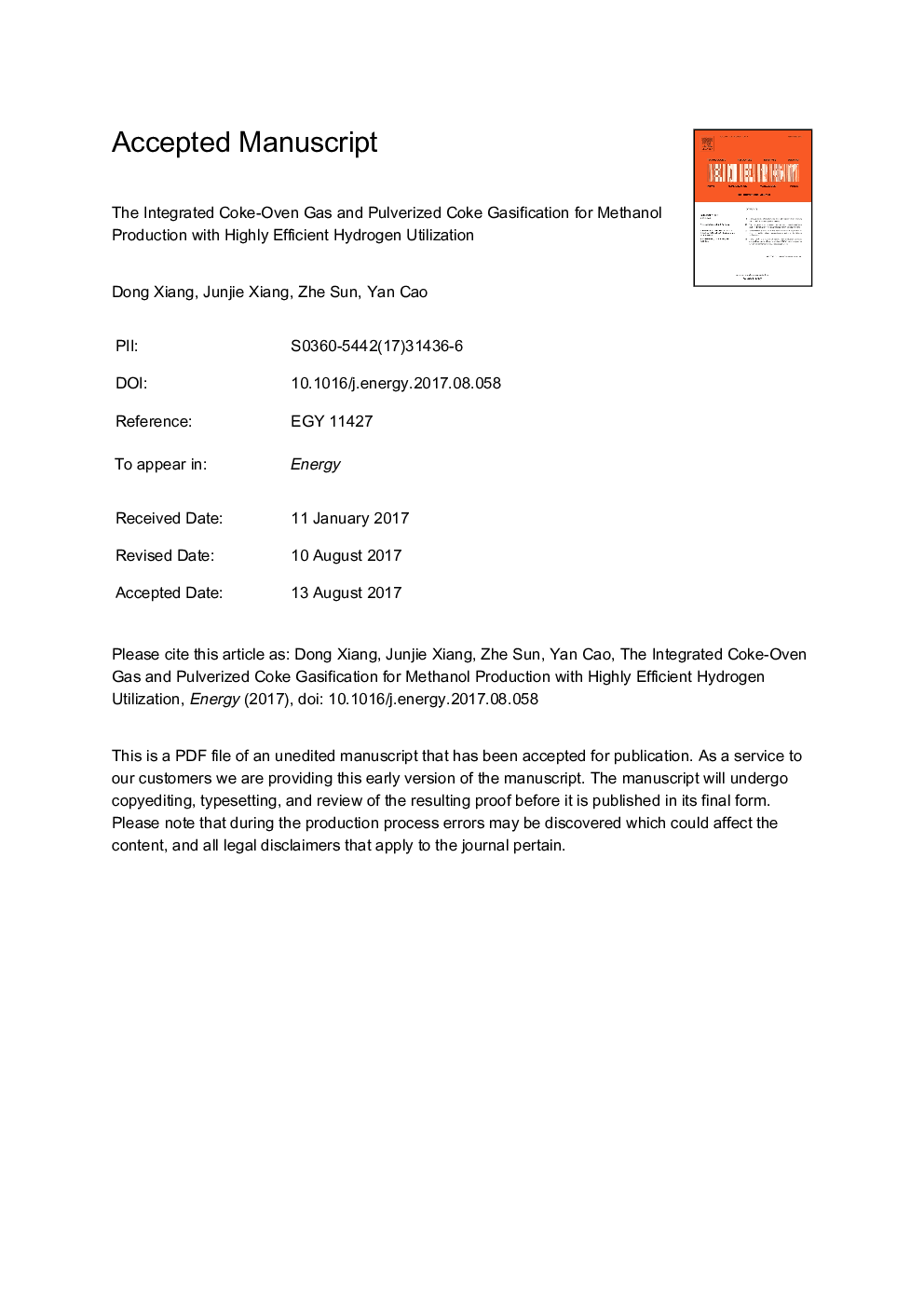| Article ID | Journal | Published Year | Pages | File Type |
|---|---|---|---|---|
| 8072627 | Energy | 2017 | 53 Pages |
Abstract
The coke-oven-gas-to-methanol (CGTM) process is one of the most important coal-to-chemical processes. However, it suffers from ineffective hydrogen utilization, limiting both its capacity and energy efficiency. In addition, currently, there is a large amount of low-quality pulverized coke that cannot be used for value-added applications. In this paper, two pulverized coke-assisted CGTM processes (PC-CGTM1&2) are proposed. In these processes, coke-oven gas is either partially oxidized or steam reformed to generate a hydrogen-rich syngas, and simultaneously gas produced by the gasification of pulverized coke is used to adjust the ratio of hydrogen and carbon to about 2, ideal for methanol synthesis. The results show that the optimized mass ratios of PC/COG are 0.27 and 0.51 for the PC-CGTM1&2, respectively. Their exergy efficiencies are increased to 71.3% and 75.9% from 58.6% in the CGTM process. Their methanol productivities are also increased to 0.63 and 0.75 from 0.43Â Mt/y. The total product costs of the PC-CGTM1&2 are 21 and 43 US$/t lower than that of the CGTM (282 US$/t). The internal rates of return for these new processes are 19.7% and 25.7%, whereas it is only 13.5% for the CGTM, demonstrating the ability of the new processes to resist inflation and market risk.
Keywords
Related Topics
Physical Sciences and Engineering
Energy
Energy (General)
Authors
Dong Xiang, Junjie Xiang, Zhe Sun, Yan Cao,
